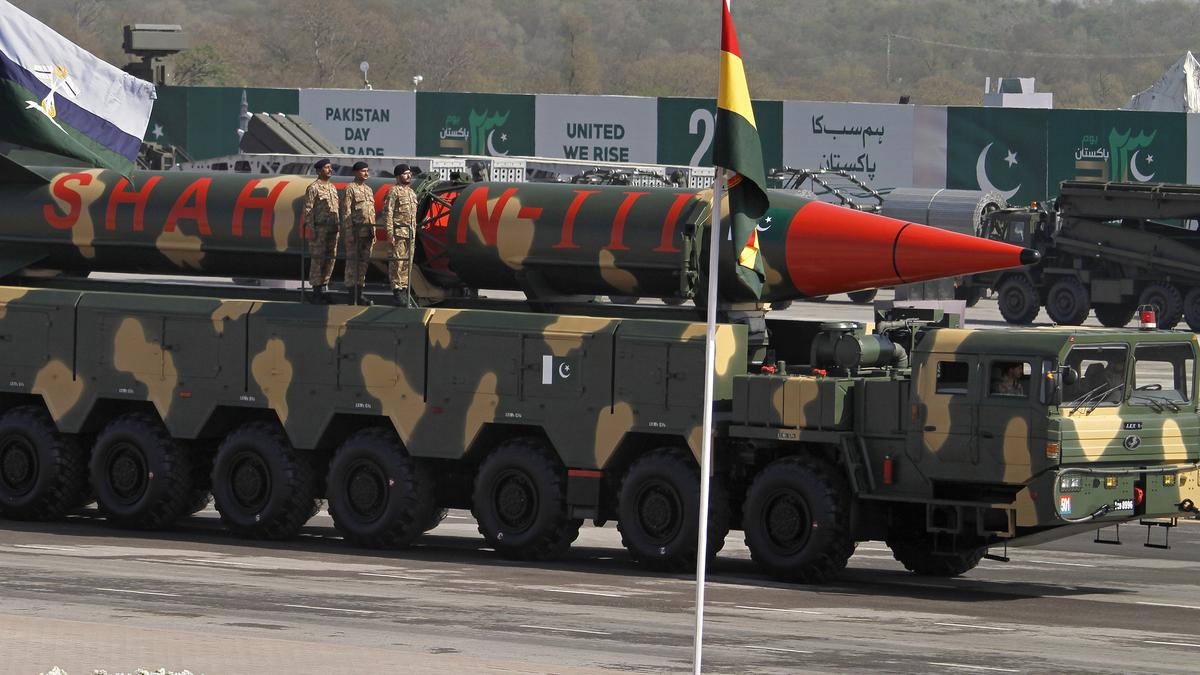Pakistan has successfully conducted a training launch of the Abdali Weapon System, a surface-to-surface missile with a 450 km range. The missile test, part of the country’s Exercise INDUS, comes amid escalating tensions with India following the deadly Pahalgam terror attack in Jammu and Kashmir.
The Missile Launch and Its Purpose

Pakistan’s military launched the Abdali Weapon System with the stated aim of ensuring operational readiness and validating the missile’s advanced navigation system and enhanced maneuverability features. The test was witnessed by senior officials from Pakistan’s Army Strategic Forces Command and other high-ranking military personnel.
India’s Response to the Provocation
The missile test has been seen by India as a provocative act. Officials in New Delhi expressed grave concern, emphasizing that any missile test by Pakistan is viewed as a serious escalation in an already volatile situation. The test comes after the terrorist attack in Pahalgam on April 22, which killed 26 people, including a Nepalese tourist. Pakistan-based terror outfits have been linked to the attack, further deepening diplomatic strains between the two nations.
Pakistan’s Military and Economic Comparison with India
According to the Global Firepower ranking, India is a top-tier military power, ranked 4th globally, while Pakistan stands at 12th place. The military budget disparity is also significant, with India’s defense spending for 2024 being almost nine times that of Pakistan’s. India’s defense budget reached $86.1 billion, whereas Pakistan allocated $10.2 billion. Despite the differences in military expenditure, the missile test underlines Pakistan’s continued focus on strengthening its defense capabilities in response to regional tensions.

Continued Military Escalation and Diplomatic Countermeasures
In the wake of the Pahalgam attack, India has taken several diplomatic steps, including suspending visas for Pakistani nationals, reducing diplomatic staff, and closing the Attari border. Pakistan, in response, has increased military provocations, including the missile test and multiple Notices to Airmen (NOTAMs) signaling possible missile launches in the region. These provocations are seen as deliberate attempts to increase pressure on India amid growing fears of a military confrontation.
Pakistan’s Show of Force and Growing Tensions
Pakistan’s actions, including the missile test and its diplomatic rhetoric, have been interpreted as part of a broader strategy to assert military strength and provoke India. This comes at a time when both countries are locked in a tense standoff over Kashmir, with frequent ceasefire violations along the Line of Control (LoC) and regular military exchanges. Experts warn that these ongoing provocations could easily spiral into a full-scale military conflict if not carefully managed.
Fearing a military retaliation by India, Pakistan has also been consistently issuing NOTAMs (Notices to Airmen) threatening missile test launches in the region as a show of force.
Pakistan issued the first NOTAM on the night of April 23 with less than 24-hour notice for test firing; however, no ballistic missile firing was observed. Soon thereafter, notifications were issued on April 26th-27th of firing by Pakistani naval ships off the coast of Karachi. Here, too, no firing drills were conducted. After two non-attempts, Pakistan repeated a third attempt on April 30th- May 2nd of firings close to India’s Exclusive Economic Zone, but again, no firings were held.
With continuous exchange of gunfire on the border in Jammu and Kashmir, and the dangerous ratcheting up of tensions by Pakistani politicians sabre-rattling, this fourth provocation of a proposed surface to surface missile test by Pakistan has the potential of dramatically escalating tensions with India.
Conclusion: The Path to Escalation
The successful missile test by Pakistan serves as a stark reminder of the fragile and volatile security situation between India and Pakistan. With both countries engaged in a dangerous cycle of provocation and retaliation, the threat of a significant military escalation looms large. As diplomatic efforts continue to address the crisis, the world watches closely, hoping for de-escalation before the situation spirals further.
Related Articles: Read more about the Pahalgam terror attack and its aftermath









